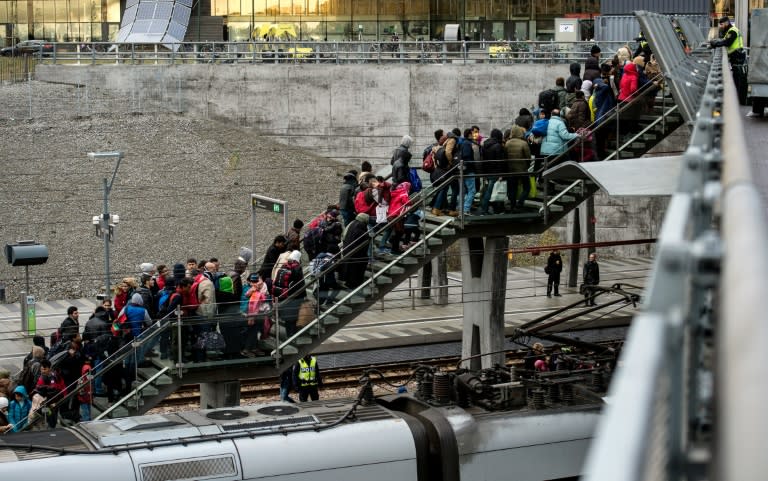Sweden expects 100,000 asylum seekers this year
Sweden's Migration Agency said Thursday it expected around 100,000 asylum seekers in 2016, fewer than the 163,000 last year, but warned its estimates remain uncertain given Europe's struggle to control the migration crisis. "One can hardly speak of forecasts now. The future depends entirely on the decisions and actions taken at the European Union level and in Sweden," agency director Anders Danielsson said in a statement. Sweden, a country of 9.8 million, was one of the EU states with the highest proportion of refugees per capita last year as Europe battles its worst migration crisis since World War II. The migration agency said it was basing its 2016 planning on a scenario of around 100,000 asylum seekers, but gave an upper estimate of 140,000 should Turkish and European authorities be overwhelmed and if Swedish border controls prove ineffective. Conversely, if border controls work properly and more restrictive measures are put in place, Sweden might receive as few as 70,000 migrants. "We need to steer the number down towards 70,000 and preferably even under that," Immigration Minister Morgan Johansson told reporters. "If we see the numbers beginning to rise to a level that we can't manage, then we'll have to do more." Danielsson told Swedish news agency TT that the crisis was "definitely not over". "The only thing we know is that the pressure on Europe will be at least as strong or even stronger in 2016 than in 2015," he said. The influx to Sweden has plummeted since January 4, when Stockholm introduced systematic photo identification checks on train, bus and ferry passengers entering via Denmark. At a peak in October, Sweden received around 10,000 asylum requests a week, compared to less than 1,000 a week now. But Sweden's capacities are under strain, with rising concern about conditions in overcrowded asylum facilities and tensions between migrants and locals. In late January, Sweden said it expected that around 45 percent of those who sought asylum last year be rejected, forecasting the expulsion of up to 80,000 people.



